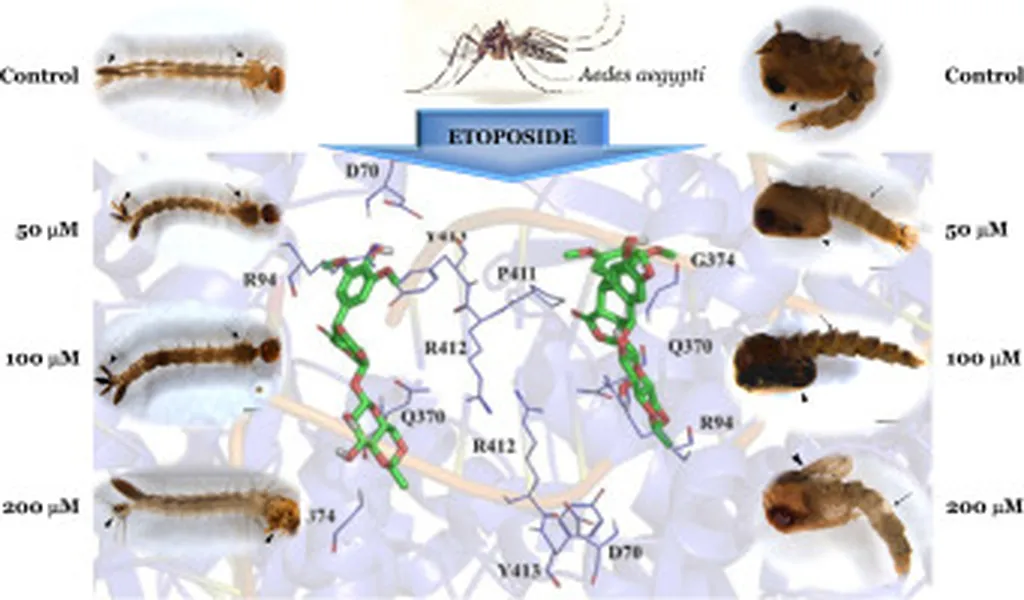In a promising development for livestock health, researchers have identified a potential new weapon in the fight against Babesia and Theileria parasites, which cause bovine babesiosis and equine piroplasmosis respectively. These microscopic invaders wreak havoc on livestock, leading to substantial economic losses for farmers worldwide. The study, published in *Frontiers in Veterinary Science*, explores the repurposing of etoposide (EP), a well-known anticancer drug, as a treatment for these parasitic infections.
The research, led by Yongchang Li from the Parasitology Laboratory at Xinjiang Agricultural University, focused on EP’s ability to inhibit *Babesia bovis*, *Babesia caballi*, and *Theileria equi*. The findings suggest that EP could enhance the effectiveness of existing treatments, offering hope for improved parasite control and reduced economic impacts on the agriculture sector.
Etoposide works by disrupting DNA Topoisomerase II, an enzyme crucial for DNA replication and transcription. The study demonstrated that EP inhibited parasite growth in a dose-dependent manner, with varying IC50 values for each parasite species. Notably, parasites treated with EP did not recover when returned to untreated culture conditions, indicating a potent and lasting effect.
“Our results show that etoposide has significant inhibitory effects on these parasites,” said Li. “This could be a game-changer for livestock health, as current treatments often face challenges like drug resistance and incomplete parasite eradication.”
The study also revealed distinct morphological changes in the parasites after EP treatment, including abnormal structures and distinct spots. These changes further underscore the drug’s potential as a complementary therapy.
In vivo experiments using a mouse model infected with *Babesia microti* showed promising results. The research team observed changes in parasite burden, red blood cell counts, and fluorescence-based signals, all of which are critical indicators of the drug’s efficacy.
The economic implications of this research are substantial. Babesia and Theileria infections lead to decreased livestock productivity, increased veterinary costs, and even mortality in severe cases. By repurposing etoposide, farmers may have access to a more effective and affordable treatment option, ultimately improving livestock health and reducing financial losses.
“This study opens up new avenues for controlling these parasites,” said Li. “Further research is needed to refine its application and explore its role in combination therapy strategies.”
As the agriculture sector continues to grapple with the challenges posed by parasitic infections, this research offers a glimmer of hope. By leveraging existing drugs like etoposide, scientists may be able to develop more effective and sustainable solutions for livestock health, ultimately benefiting farmers and consumers alike.
The study, led by Yongchang Li from the Parasitology Laboratory at Xinjiang Agricultural University, was published in *Frontiers in Veterinary Science*, highlighting the ongoing efforts to combat these devastating parasites and improve agricultural outcomes.

